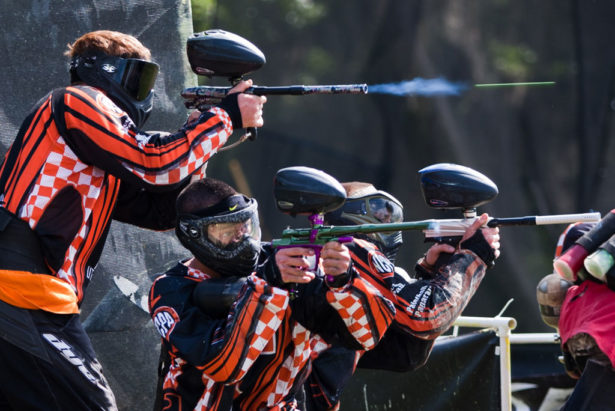By Emma Macmillan
What do football and paintball have in common at the University of Tennessee, Knoxville? Both teams wear face masks, and they’ve both won national championships.
But, unlike football, you don’t want to be in the sights of a ball – a paintball, that is. A small group of students started paintball as a club sport in 2005. Last spring, the squad took home the National Collegiate Paintball Association championship trophy.
“It’s one of those things that I will remember for the rest of my life and tell stories about when I’m old. Only a handful of other people get to do that,” says team captain Joey Baggott.
A key to the team’s success is Baggott’s father, Benny, who coaches the team and has been playing paintball for nearly 20 years. His experience includes national tournaments.
Paintball isn’t new in the United States, but it’s not a mainstream sport hobby like golf, basketball, soccer or tennis. Players don protective masks and arm themselves with air guns that shoot pellets of paint at opponents. There are many ways to play paintball with different objectives, playing fields and rules.
The college association championship is played outside in a fenced-in area with various shapes and sizes of obstacles players run around and use to hide from opponents or shield themselves while firing paintballs.
Communication is Key
There are five players on each team. When a player gets hits with a paintball, he is out until the next round of play. Players have two 10-minute periods to earn the most points; points are awarded each time a team eliminates all five players on the other team. There’s no limit to the number of points a team can earn.
The UT Knoxville team has been consistently successful–reaching the national-level competition every year since 2006. Other college teams include Texas A&M University, Ohio State University and Virginia Tech.
There is no paintball field on campus, so the team practices in a gym with rubber balls instead of paintballs. About every three weeks, the team goes to Chattanooga to practice on a field.
In any team sport, communication among the players during the game is important. Paintball is no different. Players coordinate strategy and let each other know when an opponent might be nearby.
“You have to make sure you’re telling everyone what you know and listen to what people are saying,” says team vice president Daniel Sawyer. “It’s more important to stay alive than shoot someone.”
Communication played a key role in the Vols’ championship win over California State University, Long Beach.
“Skill-wise, we weren’t better than the team we beat at nationals,” Baggott says. “We were just better at communicating on the field.”
Now the Vols are hoping for a repeat of the title.

